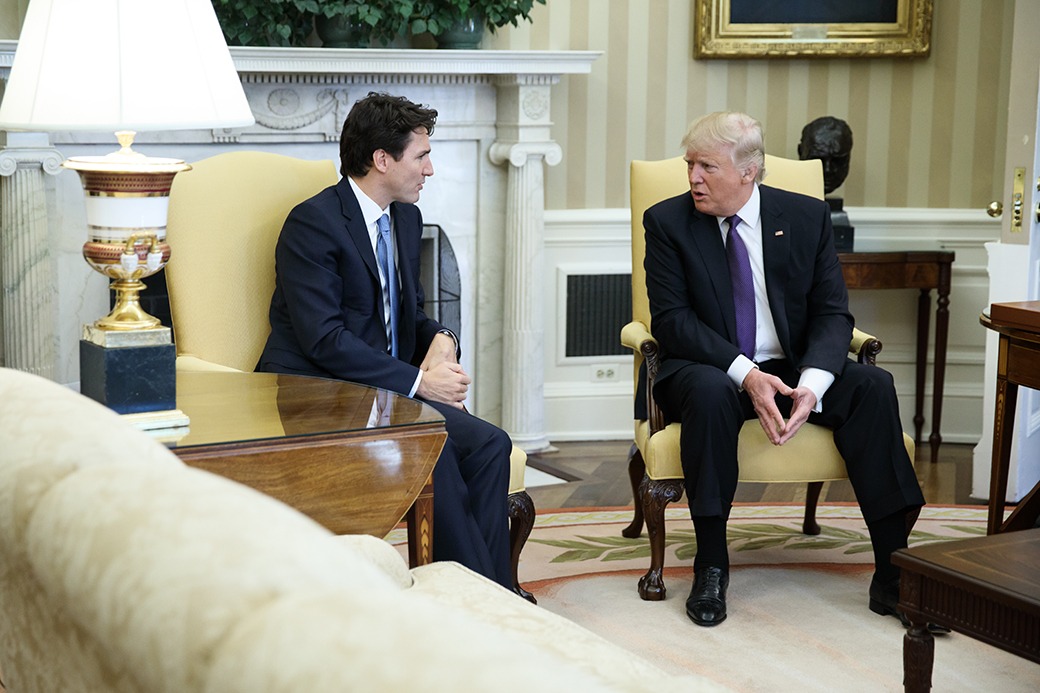596

Prime Minister Trudeau meets with President Trump in the Oval Office at the White House in Washington. February 13, 2017. Photo: Adam Scotti/PMO




